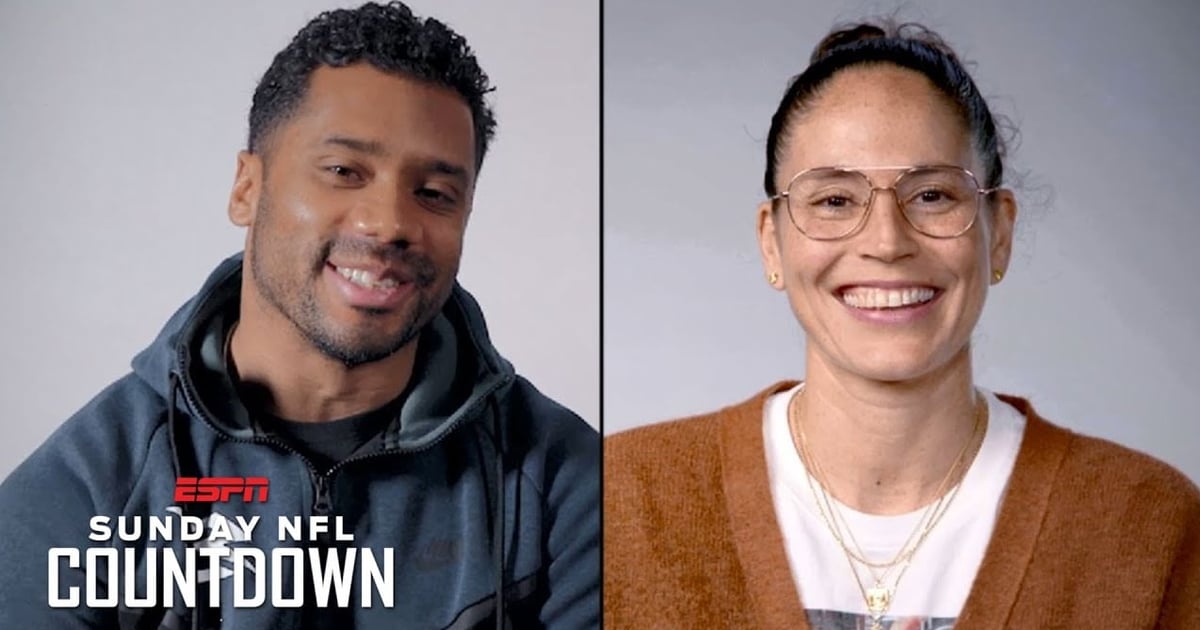In October, Sue Bird became the only WNBA player to win championship titles in three different decades, and she recently sat down with fellow Seattle athlete Russell Wilson, NFL star quarterback to the Seahawks, for a one-on-one chat about their careers, game day preparations, and social justice efforts off of the field (and court). Bird started out by thanking Wilson for sporting her jersey this fall, and Russell in turn said that the significance of Bird’s jersey goes far beyond their relationship: “It’s really the significance that you’ve had on women’s sports and women around the world.”
Russell is the second Black quarterback to win a Super Bowl, and Bird went on to say mid-interview, “Similar to you, just being a woman in the space of sports . . . it’s like almost in a way we’re not supposed to be here, so the more we are here and the more we succeed and the more people can see that, then you are paving the way for others.”
“Just by being a woman in this country trying to put professional sports on the map, I’m paving the way for younger players.”
Bird said to Wilson, “Just by you being excellent at what you do and playing that position the way you do, you’re paving the way, and I feel the same way. Just by being a woman in this country trying to put professional sports on the map, I’m paving the way for younger players.” She is also among WNBA players who dedicated their season this year to speaking on the rights of Black people in this country, and she added, “I feel like as a white player, and even as a gay woman, it’s like I understand that, especially as a gay woman, when people have my back that aren’t gay, it just speaks so much louder than me standing out there yelling for gay rights.”
Bird continued, “The word ally gets thrown around a lot, but the truth is . . . for me, this summer, with the WNBA, to be a white athlete speaking out about Black Lives Matter, I knew there was an importance to that. I also knew there was times I just needed to listen and learn, but the moments that presented themselves where I needed to be vocal about it, I knew that my role was really important as somebody who wasn’t Black.”
The four-time WNBA champ recounted the impact that athletes can have, especially women athletes — and it’s a powerful interview to watch. Bird’s legacy, she said, is more than her abilities on the court, stating, “Once you get a taste of the change that you can possibly make, you just don’t want to stop.”
